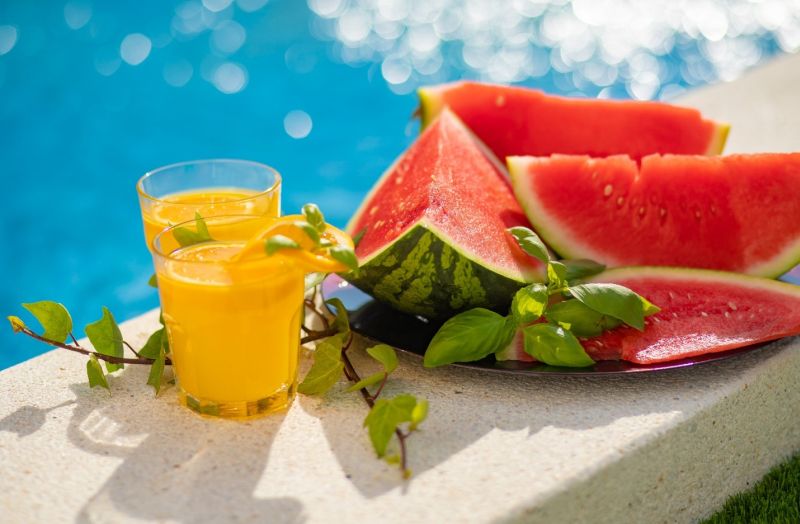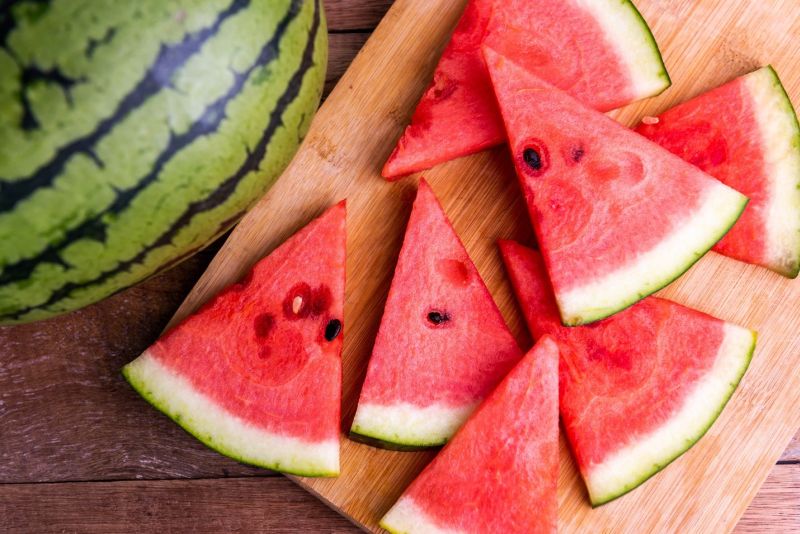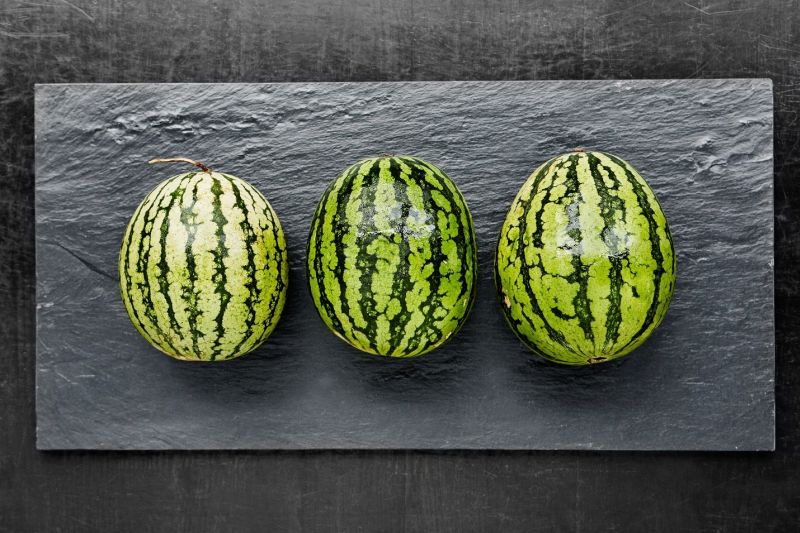A Guide to Eating Watermelon Seeds Safely
Watermelon is a refreshing and delicious fruit that many people worldwide enjoy.
However, when it comes to eating watermelon seeds, opinions are divided.
Some people believe that watermelon seeds are safe to eat and beneficial for health, while others think they should be avoided at all costs.
This article will explore whether you can eat watermelon seeds and what benefits or risks they may offer.
Firstly, it is essential to note that not all fruit seeds and pits are safe to eat. Some can be poisonous if consumed in excess.
However, watermelon seeds are generally considered safe to eat in moderation. They are a good source of vitamins and minerals, including magnesium, iron, and zinc.
Additionally, watermelon seeds are low in calories and contain “good” fats, making them a healthy snack.
So, can you eat watermelon seeds?
The answer is yes, you can. However, it is crucial to remember that eating too many watermelon seeds may lead to digestive issues, such as bloating and diarrhea.
Therefore, it is recommended to consume them in moderation and to avoid eating the seeds if you are allergic to nuts or seeds.
The following sections will explore the benefits and risks of eating watermelon seeds.
The Anatomy of a Watermelon Seed
When you cut open a juicy watermelon, tiny black or white seeds may be scattered throughout the fruit.
These seeds are an essential part of the watermelon’s reproductive system, but can you eat them? Let’s take a closer look at the anatomy of a watermelon seed to find out.
Types of Watermelon Seeds
Watermelon seeds come in two main types: black and white. Black seeds are mature seeds that have developed fully, while white seeds are immature seeds that have not yet developed.
White seeds are often found in seedless watermelons, produced by crossing two different plants.
The resulting fruit contains tiny, underdeveloped seeds that are safe to eat.
Nutritional Content
Watermelon seeds are packed with nutrients and can be a healthy addition to your diet.
They are a reliable source of protein, fiber, and essential minerals like magnesium, iron, and zinc.
A one ounce serving of watermelon seeds contains 10 grams of protein, making them an excellent snack for vegetarians and vegans.
Here is a breakdown of the nutritional content of watermelon seeds per one ounce serving:
| Nutrient | Amount |
| Protein | 10g |
| Fiber | 2g |
| Magnesium | 139mg |
| Iron | 2.9mg |
| Zinc | 2.3mg |
While watermelon seeds are a nutritious snack, they are also high in calories, so it’s important to enjoy them in moderation.
One ounce of watermelon seeds contains approximately 160 calories, about the same as a small candy bar.
In conclusion, watermelon seeds are safe and can be a healthy addition to your diet.
They are packed with protein, fiber, and essential minerals, making them an excellent snack for anyone looking to boost their nutrient intake.
So, don’t be afraid to munch on a few seeds next time you enjoy a juicy watermelon!
Health Benefits of Eating Watermelon Seeds
We all know that watermelon is a refreshing and delicious fruit, but did you know its seeds are also packed with nutrients?
Here are some of the health benefits of eating watermelon seeds:
- Good Source of Protein
Watermelon seeds are a great source of protein, containing about 8 grams of protein per 100 grams of seeds.
It makes them an excellent snack choice for vegetarians and vegans who may struggle to get enough protein in their diet.
- Rich in Magnesium
Magnesium is essential in many bodily functions, including regulating blood pressure, maintaining healthy bones, and supporting a healthy immune system.
Watermelon seeds are a rich source of magnesium, with 100 grams of seeds containing about 146 milligrams of this vital mineral.
- High in Healthy Fats
Watermelon seeds are also a good source of healthy fats, including monounsaturated and polyunsaturated fats.
These fats can help lower cholesterol levels and reduce the risk of heart disease when consumed as part of a healthy diet.
- Contains Vitamins and Minerals
In addition to magnesium, watermelon seeds are a useful source of other essential vitamins and minerals, including iron, calcium, potassium, and zinc.
These nutrients are essential for maintaining good health and preventing nutrient deficiencies.
- May Help with Digestion
Watermelon seeds are a reliable source of fiber, which can help promote healthy digestion and prevent constipation.
However, it’s important to note that the seeds also contain fiber that can slow digestion if not consumed with enough water and other materials to push it through.
Watermelon seeds are a nutritious and delicious snack with various health benefits. So, next time you’re enjoying a juicy slice of watermelon, don’t forget to save the seeds!
How to Eat Watermelon Seeds
If you’re wondering how to eat watermelon seeds, roasting and sprouting are two popular methods. Both methods are easy and can be done at home.
Roasting Watermelon Seeds
Roasting watermelon seeds is a trendy way to enjoy them. Here’s how to do it:
- Rinse the seeds thoroughly to remove any excess watermelon flesh.
- Spread the seeds on a baking sheet and sprinkle them with salt or your favorite seasoning.
- Roast the seeds in the oven at 325°F for 15-20 minutes or until golden brown.
- Let the seeds cool before eating.
Roasting watermelon seeds is a wonderful way to add crunch and flavor to your snacks. You can eat them as a snack or add them to trail mix or granola.
Sprouting Watermelon Seeds
Sprouting watermelon seeds is another way to enjoy them. Here’s how to do it:
- Rinse the seeds thoroughly to remove any excess watermelon flesh.
- Soak the seeds in water for 24 hours.
- Drain the water and rinse the seeds.
- Place the seeds in a jar with a lid and cover them with a damp cloth.
- Keep the jar in a warm, dark place for 3-4 days, rinsing the seeds twice daily.
- Once the seeds have sprouted, rinse them and enjoy!
Sprouted watermelon seeds are a terrific addition to salads, smoothies, and sandwiches. They are also a good source of protein and fiber.
Overall, watermelon seeds are a healthy and tasty snack that can be enjoyed in various ways. Whether roast or sprout, they are a great addition to any diet.
Potential Risks and Side Effects
While watermelon seeds are safe, there are a few potential risks and side effects.
Digestive Issues
Watermelon seeds are high in fiber, which can be beneficial for digestion.
However, consuming too many seeds can cause constipation or diarrhea, especially if you have a sensitive digestive system.
If you experience stomach troubles like gas or bloat after eating watermelon seeds, it may be best to limit your intake.
Allergic Reactions
Some people may be allergic to watermelon seeds, and consuming them can cause hives, swelling, and difficulty breathing.
Avoiding watermelon seeds altogether is best if you have a known allergy to other seeds or nuts.
Weight Gain
While watermelon seeds are low in calories, they are high in fat.
Consuming too many seeds can lead to weight gain, especially if you’re not balancing your overall calorie intake.
If you’re watching your weight, consuming watermelon seeds in moderation is best.
Pesticide Residues
Like many fruits and vegetables, watermelons may be treated with pesticides to protect against pests and disease.
While pesticide residues on watermelon seeds are generally low, washing them thoroughly before consuming them to reduce exposure is still important.
Conclusion
In conclusion, watermelon seeds are safe and may have health benefits. While the hard, black seeds can be challenging to chew, the soft, white seeds are much more enjoyable.
It is important to note that while watermelon seeds are safe to eat, they should be consumed in moderation. Overconsumption of seeds can lead to digestive issues, as they are high in insoluble fiber.
If you want to incorporate watermelon seeds into your diet, consider roasting them for a crunchy snack or adding them to salads for a nutritional boost.
Overall, watermelon seeds are a tasty and nutritious addition to any diet. Still, it is essential to consume them in moderation and be mindful of any digestive issues that may arise.
Frequently Asked Questions
Are watermelon seeds safe to eat?
Yes, watermelon seeds are safe to eat. They are a great source of protein, healthy fats, and minerals like magnesium, iron, and zinc.
However, it is essential to note that consuming large amounts of watermelon seeds may cause digestive discomfort.
What are the benefits of eating watermelon seeds?
Watermelon seeds have several health benefits. They are a good source of protein, healthy fats, and minerals like magnesium, iron, and zinc.
They also contain antioxidants like lycopene, which can help protect against certain types of cancer and heart disease.
Can dogs safely eat watermelon seeds?
No, dogs should not eat watermelon seeds. Watermelon seeds can cause digestive problems in dogs, and in some cases, they can even cause an intestinal blockage.
How many watermelon seeds should I eat daily?
There is no specific recommended daily intake for watermelon seeds.
However, it is essential to consume them in moderation as they are high in calories and fat. A handful of watermelon seeds (around 1 ounce) daily is safe to consume.
What is the nutritional value of watermelon seeds?
Watermelon seeds are a reliable source of protein, healthy fats, and minerals like magnesium, iron, and zinc.
They also contain antioxidants like lycopene, which can help protect against certain types of cancer and heart disease.
What are some ways to prepare watermelon seeds for consumption?
There are several ways to prepare watermelon seeds for consumption. One way is to roast them in the oven with salt and olive oil.
Another way is to grind them into a powder and use it as a protein supplement in smoothies or baked goods. Add watermelon seeds to salads or trail mix for a crunchy texture.
Elizabeth Redd: I am a passionate advocate for Health and Healing, dedicated to empowering individuals to live their best lives.
As the founder and publisher of Health and Healing, I have established myself as a guiding force in the wellness industry.
I am committed to providing the latest research, holistic approaches, and inspiring stories to open new possibilities for your health and healing journey.
Learn more about Elizabeth and Join Us at Health and Healing. Also, check out My About Page.







0 Comments